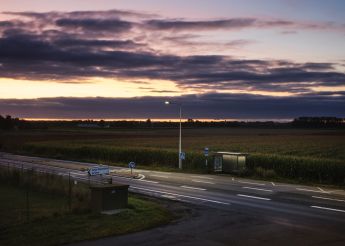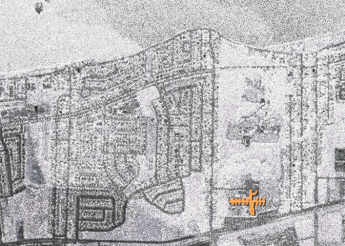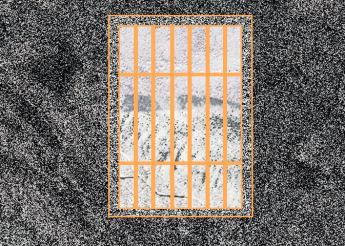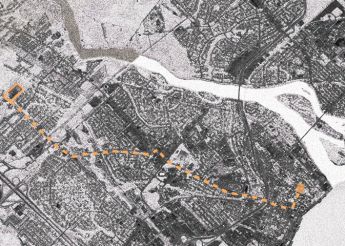Of course, these restrictions are infinitely more lenient than the prison regime, but these are two answers to Spinoza’s fundamental question “What can a body do?” and to the symmetrical question of what society can impose on a body as a punishment or as discipline. If an international e-commerce platform has become infamous for not allowing its employees time to go to the toilet, then there must be something in our social, legal, and cultural structures, the ones that tell us we may only dress in certain way and can only travel along certain routes. Our freedom to come and go does not just stop where others’ starts, it stops at a property’s forecourt, at the boundaries of an exclusive area and at social norms. Customer parking only; please do not walk on the cycle path.
“Park closed […] it’s nothing really but I make a scene anyway” Benjamin Biolay mumbles in one of his recent songs; “park closed, I don’t know where to be, I feel lost at sea” Adélaïde Chabannes de Balsac replies in the track. Here we find ourselves making pop songs about these confusing cities which block our path at every turn. It is the age of inviting cities, calm cities, green cities, child height cities and kindly cities. Yet behind this veneer of mundane, prosaic virtue, the city silently closes in around us. Like a reverse Truman Show, where Jim Carrey could never leave the fake city where he lived a life that only he didn’t know was a sham, access is becoming more and more restricted in this welcoming, fenced-off city brimming with sterilised cheer. Yet it is particularly difficult to think about this restriction when imprisonment is so absent, when invisible punishment takes place in housing, which is also a fundamental right, when institutions of imprisonment are placed far away from us in favour of restrictions on where we may go and people’s internalisation of these authorised routes.
This internalising of how watertight cities are becoming takes several forms and is affecting the most progressive movements. The Lyon branch of the environmentalist group Vélorution 2021 does not just want cycling to be possible for all, it wants other types of transport to be excluded. The movement is centred around this belligerent, border town mentality that we thought we had escaped in identity movements: “take back our territories”. Take them back from who? From what invaders? Who does said territory belong to? There is no clear answer, but one thing is clear: everything is not for everyone.
Not everybody can be Michel Foucault. It is rather difficult to consider this historical evolution of our relationship with the body. A body in which institutional dynamics seem to come less readily than following a tectonic evolution which calls for the restriction of social spaces. The solution of course does not lie in envisaging primary schools where everyone could come and go as they please, but the war between ownership by deed (the part owners of the residence) and cooperative ownership (the young people in the building’s lobby) will not be resolved by one side winning over the other.
A city cannot be carved up into elements which are all sealed off from one another, it is a system of interactions.
Like in a Manet painting, the colour of each part is influenced by what sits next to it. Renzo Piano, the architect who designed the Centre Pompidou, used to say that a city is a place where the church stands beside the brothel. At daybreak, a city is a place where the last stragglers on their way home from a night out stagger past the early birds on their way to work; it is a place where schools and administrative buildings could be open on the weekend to be used for other things. Perhaps it can be a place where people walking around in the fresh air hear the cries of prisoners locked behind bars. A place where people safe and warm inside hear the pleas of those left out in the cold. A city is a place where we must constantly question where we place these barriers, and in this we must act with care and caution.
The priest Abbé Pierre said that in every Emmaüs community there needed to be a broken window, so that they could always, absolutely always, hear somebody calling out from the other side.





